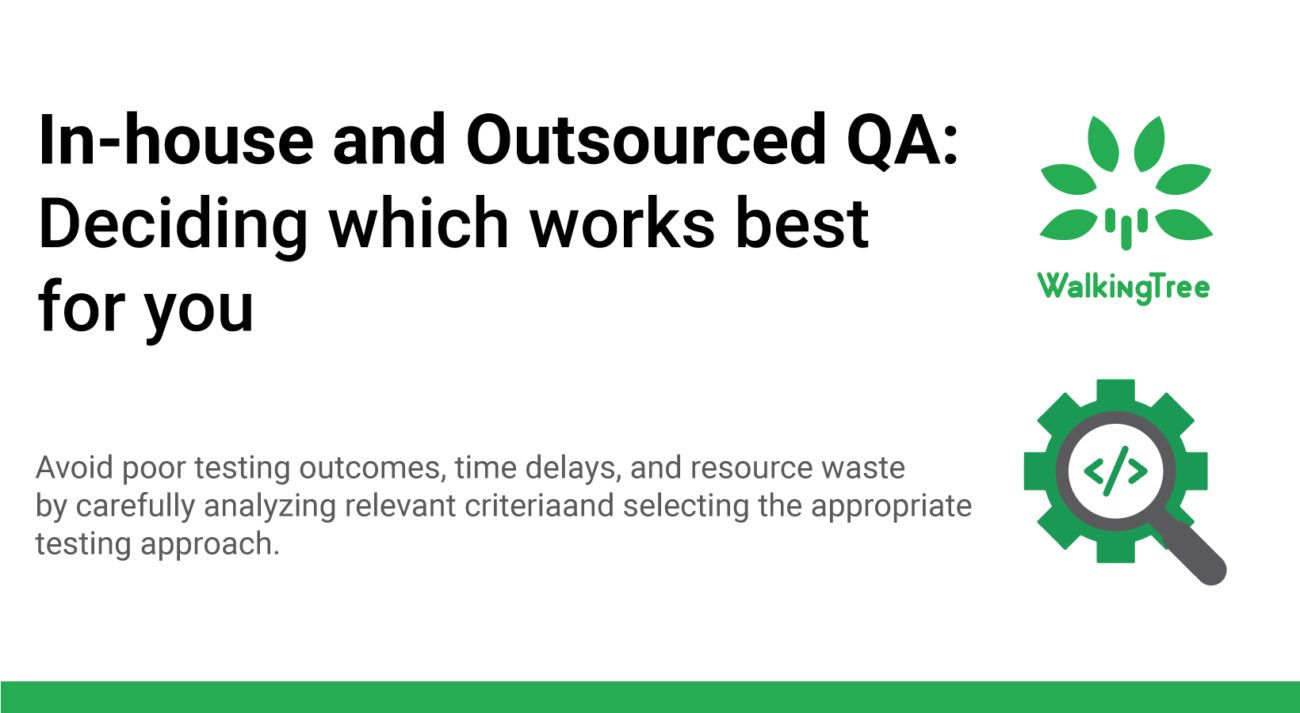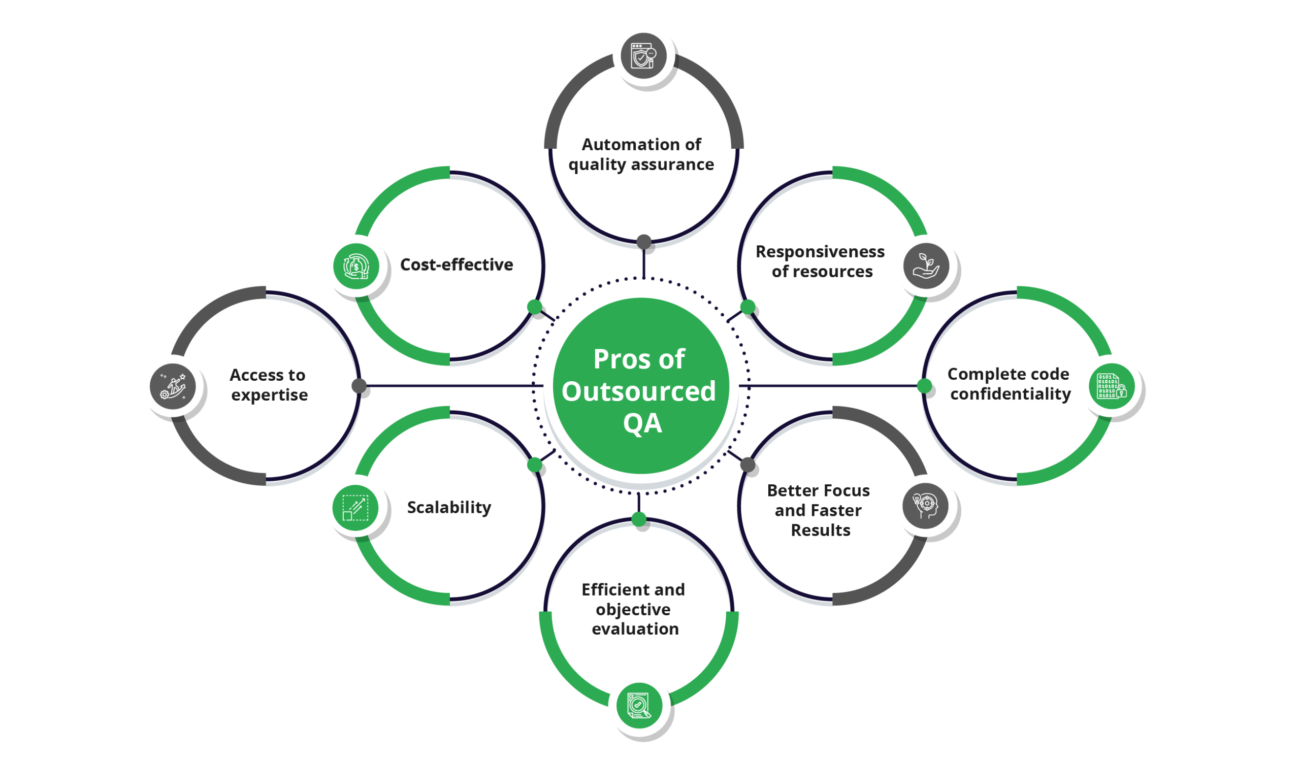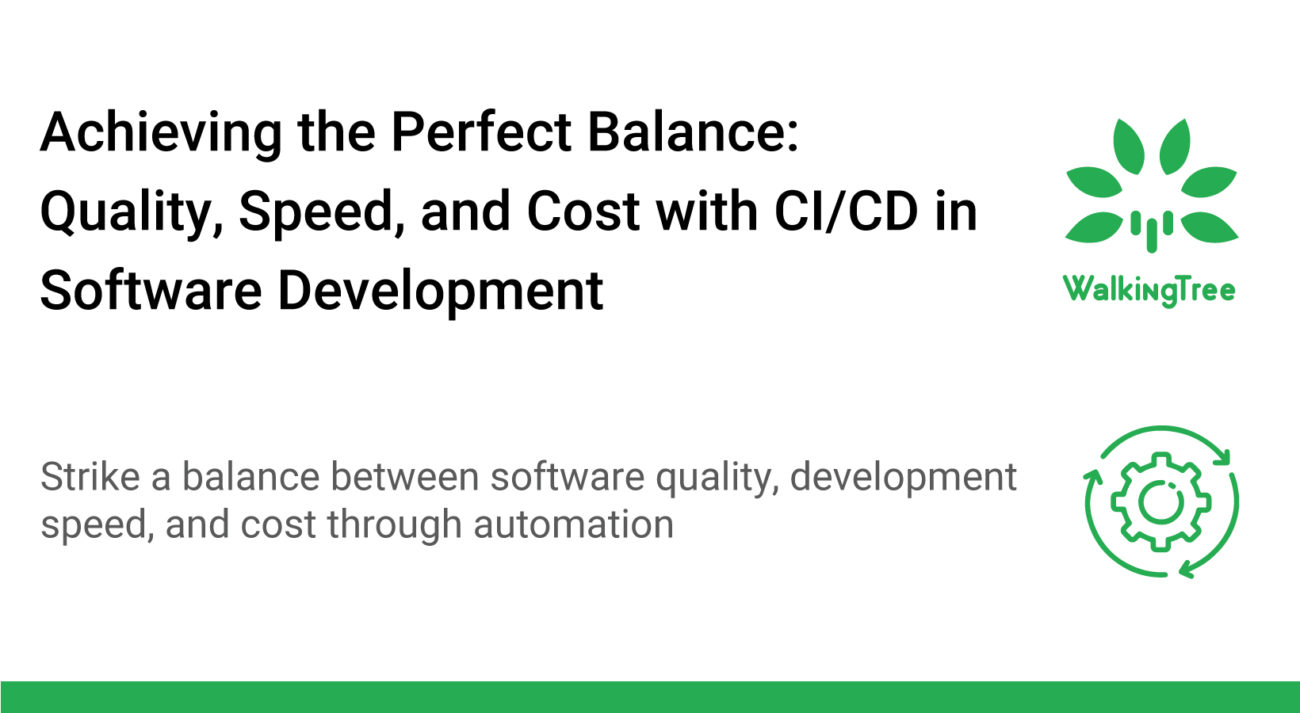In-house and Outsourced QA: Deciding which works best for you

 Avoid poor testing outcomes, time delays, and resource waste by carefully analyzing relevant criteria and selecting the appropriate testing approach
Avoid poor testing outcomes, time delays, and resource waste by carefully analyzing relevant criteria and selecting the appropriate testing approach
How do you decide whether to keep quality assurance (QA) in-house or outsource it?
The decision to keep QA In-house or outsource QA requires careful consideration. Each option has its own advantages and disadvantages. Sometimes it is difficult to determine the best fit for your business needs.
This blog aims to explore the differences between in-house and outsourced QA. Also provides an overview of the benefits and drawbacks of each approach. The objective is to offer a useful guide. Assist you in making an informed decision that aligns with your unique circumstances.
The upsides to in-house QA
- Control: By conducting in-house QA testing, you can have control over the process from start to finish. You can manage the testing timelines, resources, and test cases to align with your company’s goals and objectives.
- Proximity: Allows you to work closely with the development team. It offers the advantage of communication and collaboration. Saves a little time. Helps resolve any issues that arise during the testing phase while providing additional, real-time feedback.
- Customization: To meet the organization’s needs, Inhouse QA teams can be tailored specifically. To align with your specific business needs you can create test cases to control the quality of testing.
- In-depth knowledge: Having a deep understanding of the company’s systems, processes, and products, in-house QA teams perform tests effectively and efficiently.
Not to forget the drawbacks
- Cost: In-house QA process can be very expensive. You need to invest in personnel, technology, and other resources. For smaller companies, this can be very challenging. They may not have enough budget to hire and train a larger QA team.
- Limited skillset: With In house QA teams there can be limitations on skill sets. May not possess expertise in areas such as mobile and automation testing. The overall quality of the testing process can be marred due to these limitations.
- Resource constraints: To perform complex testing processes like load testing or security testing, Inhouse QA teams may not have enough resources. This can limit the types of tests. Accomplishing such types of tests may necessitate the need for outsourcing.
When to opt for in-house QA?
Opting for in-house QA can be advantageous only if software testing is a core component of your business. Nevertheless, you should have all the expertise required for testing needs.
Pros of Outsourced QA:

- Cost-effective: You only pay for the services required. Don’t have to invest in personnel, technology, or other resources. Outsourced QA can be very cost-effective when compared with in-house.
- Access to expertise: You can tap into specialized expertise. Professional testers who are trained and experienced in testing methodologies, tools, and techniques. QA has specialized resources and expertise. With a wide range of testing areas, including mobile and automation testing. Outsourcing greatly helps all expertise you need to ensure your testing process is of high quality.
- Scalability: Outsourced QA can be a perfect solution. More advantageous for companies that experience fluctuations in demand for their products. It can be scaled up and down as needed.
- Efficient and objective evaluation: Most coders struggle to look at defects, errors, and bugs objectively. By choosing to separate coding from testing by using an outsourced approach you gain the benefit of an unbiased evaluation of your software. A fair assessment will be ensured by an outsourced team that has no involvement in the development process. Furthermore, outsourcing QA to a professionally qualified company with expertise and experience in the field ensures that your software is thoroughly and strictly tested.
- Better Focus and Faster Results: Outsourcing greatly accelerates the software development process. This is primarily because outsourcing QA and software testing allows you to focus completely on your core business. This generates revenue without having to worry about the quality of your software applications. This is especially important when a company needs to make urgent changes that are thoroughly tested for correct functionality and validity.
- Complete code confidentiality: Outsourcing ensures that your company retains access to unique testing scripts. Defect-free software without having to share coding details. Any breach of intellectual property rights should not be a concern.
- Responsiveness of resources: Allows you to pay for only the resources you need. Sometimes an application can get more complex than you anticipated. In such cases, both technical expertise and additional resources are required to test the app. This is one common scenario where an outsourced team can be very helpful. Outsourcing the testing process can help in such situations yet in your budget. For example, if you want to achieve faster release cycles, you may need to ramp up or ramp down resources instantly. You can achieve this by reducing the deployment of resources and paying only for what you require with QA outsourcing.
- Automation of quality assurance: Automation testing is gaining popularity. Among businesses, it provides users with a seamless multi-device app experience. However, not everyone has expertise in automated testing. It makes sense to hire a third-party testing provider with automated testing experience. A professional provider accelerates and improves the overall process by utilizing advanced test automation tools. Bug tracking, and cutting-edge technologies. They also have a wide range of technically sound test resources, robust testing platforms, and cloud infrastructures for testing.
When is outsourcing a good option?
Outsourced QA is a better option when you have limited resources, need specialized testing, have seasonal testing demands, require global reach, or want to speed up time to market.
All things considered
Choosing between outsourcing and in-house testing depends on your organization’s needs, budget, and expertise level. Consider the scope and complexity of your project, the project timeline, and the importance of direct communication and control over the testing process.
Evaluate the advantages and disadvantages of both options carefully. Outsourcing can be cost-effective and provide specialized testing knowledge, but in-house testing can offer direct communication, collaboration, and a skilled team.
Ultimately, by carefully considering the specific needs and circumstances of your project, you can make an informed decision that aligns with your project requirements, budget, and expertise level.












